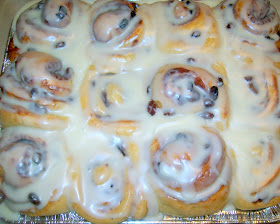Hello my friends, and dear readers, very sorry for being away from you and my blog. Sometimes things happened against our will, and because we are only human sometimes an extra doze of excitement can move the balance and shake the foundation.
Lately I was faced with some challenges, which were not either fair or legal, and I am trying to solve them in a wise and civilized way. Unfortunately I lost the battle, but I am still fighting and in God’s will I will not let them win the war.
My fight is for righteousness and justice , the devil can be strong, but at the end honesty and justice will win.
Syria سوريا , officially the Syrian Arab Republic (Arabic: الجمهورية العربية السورية), is a country in Western Asia, bordering Lebanon and the Mediterranean Sea to the west, Turkey to the north, Iraq to the east, Jordan to the south, and Israel to the southwest.
The name Syria formerly comprised the entire region of the Levant, while the modern state encompasses the site of several ancient kingdoms and empires, including the Eblan civilization of the third millennium BC. In the Islamic era, its capital city, Damascus, was the seat of the Umayyad Empire and a provincial capital of the Mamluk Empire. Damascus is widely regarded as one of the oldest continuously inhabited cities in the world.
Modern Syria was created as a French mandate and attained independence in April 1946, as a parliamentary republic. The post-independence period was rocky, and a large number of military coups and coup attempts shook the country in the period 1949-1970. Syria has been under Emergency Law since 1962, effectively suspending most constitutional protections for citizens, and its system of government is considered non-democratic.
The country has been governed by the Baath Party since 1963, although actual power is concentrated to the presidency and a narrow grouping of military and political strongmen. Syria's current president is Bashar al-Assad, who won a referendum on extending his presidency for second term, garnering 97.62 percent of votes in 2007 and is the son of Hafez al-Assad, who held office from 1970 until his death in 2000. Syria has played a major regional role, particularly through its central role in the Arab conflict with Israel, which since 1967 has occupied the Golan Heights, and by active involvement in Lebanese and Palestinian affairs.
The population is mainly Sunni Muslim, but with significant Alawite, Shia, Christian and Druze minorities. Since the 1960s, Alawite military officers have tended to dominate the country's politics. Ethnically, some 80% of the population is Arab, and the state is ruled by the Baath Party according to Arab nationalist principles, while approximately 20% belong to the Kurdish, Armenian, Assyrian, Turkmen, and Circassians minorities.
Etymology
Main article: Name of Syria
The name Syria derives from ancient Greek name for Syrians, Σύριοι Syrioi, which the Greeks applied without distinction to the Assyrians. A number of modern scholars argue that the Greek word is traced back to the cognate Ἀσσυρία, Assyria, ultimately derived from the Akkadian - Aššur. While others believe that it was derived from Siryon, the name that the Sidonians gave to Mount Hermon.
The area designated by the word has changed over time. Classically, Syria lies at the eastern end of the Mediterranean, between Egypt and Arabia to the south and Cilicia to the north, stretching inland to include Mesopotamia, and having an uncertain border to the northeast that Pliny the Elder describes as including, from west to east, Commagene, Sophene, and Adiabene.
By Pliny's time, however, this larger Syria had been divided into a number of provinces under the Roman Empire (but politically independent from each other): Judaea, later renamed Palaestina in AD 135 (the region corresponding to modern day Israel and Jordan) in the extreme southwest, Phoenicia corresponding to Lebanon, with Damascena to the inland side of Phoenicia, Coele-Syria (or "Hollow Syria") south of the Eleutheris river, and Mesopotamia.
Brief History of Modern Syria
Syria fell to the Ottoman Turks in 1516 and remained a part of their Ottoman Empire for four centuries. During this period, Syria witnessed great deterioration in economic, social, and political fields. In 1916, the Arabs took the opportunity of World War I to revolt against the Turkish rule. Arabs received British military help and promises that after the War ends, Arab countries will be granted full independence. On 6 May 1916, the Ottoman authorities hanged tens of Syrian national leaders in Damascus and Beirut. This day is still celebrated in Syria and Lebanon as the Martyrs' Day. The Arab armies under leadership of Sharif Hussein of Mecca soon achieved victory over the Turks, and in early 1918, Arab and British armies entered Damascus ending 400 years of Ottoman occupation.
Later in 1918, Syria was declared an independent kingdom under King Faisal I, son of Sharif Hussein. However, France and Britain had their own plans in mind. In an agreement known as the Sykes-Picot agreement, they decided to divide the Middle East into French and British 'spheres of influence'. Syria was to be put under French mandate. In early 1920, French troops landed on the Syrian coast, after several battles with poorly equipped Syrian rebels, they managed to get the country under their control. In 1923, the League of Nation officially recognized French mandate over Syria.
Syrian cuisine
The Syrian cuisine is rich and varies in its ingredients which is linked to the region of Syria where a specific dish has originated. Syrian food mostly consists of Southern Mediterranean, Greek, and Southwest Asian dishes. Some Syrian dishes also evolved from Turkish and French cooking. Dishes like shish kebab, stuffed zucchini, yabra' (stuffed grape leaves, the word yapra' derives from the Turkish word 'yaprak' meaning leaf). The main dishes that form the Syrian cuisine are kibbeh, wara' Inab, hummus, Syrians often serve selections of appetizers, known as mezza, before the main course. Zaatar, minced beef, and cheese manakish are popular hors d'œuvres. The Arabic flatbread khobz is always eaten together with mezza. Syrians are also well-known for their cheese. The very popular string cheese jibbneh mashallale is made of curd cheese and is pulled and twisted together. Syrians also make cookies to usually accompany their cheese called ka'ak. These are made of farina and other ingredients, rolled out, shaped into rings and baked. Another form of a similar cookie is to fill with crushed dates mixed with butter to accompany their jibbneh mashallale. Drinks in Syria vary depending on the time of the day and the occasion. Arabic coffee, also known asTurkish coffee is the most well-known hot drink usually prepared in the morning at breakfast or in the evening. It is usually served for guests or after food. Syrian beverages include Ayran, Jallab, and White coffee. There is also a well-known locally manufactured beer called Al Shark.
The Walima April Challenge is brought to us by two lovely ladies... Nisrine from www.nisrine79.blogspot.com and Mona form www.l2ma.com .
Nisrine is from Damascus so I asked her if she can prepare a traditional Damascus Dessert. Mona is from Allepo, and they are famous for their tasty and spicy food, and several versions of kibbee. It took us some time to decide on the recipes, as several ingredients are not available in North America. I truly apologize for the delay... but we wanted to give you something which represent several provinces in Syria, and with ingredients available to every one is cooking with us.
The Spring Kibbee
This kibbee is prepared during the Spring Season when the shepherds milk the cows and sheep and use the milk to make homemade fresh cheeses
Ingredients for the stuffing:
Kilo Cheese Course (well rained from any liquid)
1-2 teaspoon powder red pepper
Toasted walnuts, almonds chopped or pine nuts
(the fresh cheese is similar to Ricotta Cheese where we can replace with, or by using fresh homemade ricotta with fresh Mozzarella Cheese/Boccoccini Cheese, well drained.
for the kibbee dough
500gm of lamb or beef lean meat either outside round/Eye of a round or fillet Mignong calf (grounded finely in a food processor to become a paste)
500gm fine Brown burghul
1 large Onion
1 tsp of Middle Eastern 7 spice mix (black pepper, all spice, nutmeg, cloves, cinnamon, white pepper, dried rose petals this is optional )
Salt to taste
½ tsp cinnamon
homemade ghee or clarified butter
** you can use less burghul to meat
How to prepare
Cut the cheese into slices and then add the hot pepper (Allepo ground hot red pepper )The sliced nuts and mix well.
Wash and soak the bulgur in little cold water for 10 to 15 good minutes and then drain.
Mince with the onion, bulgur wheat in food processor twice, the third time we add the meet and mince all together to combine, you might need to do this in several steps if the machine is not big enough.
Empty the mix in a big bowl, dip your hands in some water and start mixing and kneading the meat and burghul mix well to combine nice dough. Adjust the seasoning if need it.
Bring three small tea plates , turn the plates upside down and sprinkle some water on them and cover with a plastic wrap… cut a piece of the kibbee the size of an egg, and put it on one plate and press with the other to flatten it (like a Hamburg) add 2-3 tbsp of the stuffing in the centre of the dough, cover with another flatten kibbee dough, and press on the sides to close tightly and turn the top dough into a small dome (I think if we use a small deep dish or a ramekin will make it easier to form the dome shape… )
Grease a baking tray with ghee or clarified butter add the kibbee on the tray, you can dap a small piece of the ghee on top of each kibbee or using a brush. Bake the kibbee in preheat 400F oven, check every 10 minutes and brush again, dipping the brush in the pan drippings.
A tastier way of cooking these kibbee, if you brush them with the butter or ghee and BBQ outside on medium heat…until they are golden brown. Make sure the stuffing is not oozing out
Serve the kibbee with Middle Eastern Salad or Yogurt Iran (a diluted yogurt in some cold water and salt, some add dried mint and garlic)
Barazik Al Sham
200 gm soft butter
¼ cup powder sugar
2 large eggs
1 tsp pure vanilla
3 cup of sifted AP Flour
1 tsp baking powder
Dash of salt
2 tsp white vinegar
In a mixer add the soft butter and the icing sugar and mix to combine, add the eggs and mix well. Add the vinegar and vanilla.
Sift the flour; salt and baking powder add them to the mix well so that they all combined to nice dough. Put the dough in the fridge to rest for one hour.
Take the dough out of the fridge and turn it into small balls. In separate bowls add around ½ cup of sesame seeds and 1 cup of sliced pistachios. Using the palm of your hand, flatten the round cookies and dip the bottom side with chopped pistachios and the top with sesame seeds.
Bake in preheated 350F oven for 14-16 minutes depends on your oven, or till golden brown
**
Some recipes use honey syrup to brush the top before dipping in sesame seeds…It will give a darker golden color.
Platter of Barazek - Shortbread Cookies
Delicious with a crunchy bite to them
dip one side with sesame seeds and the other with pistachios



























